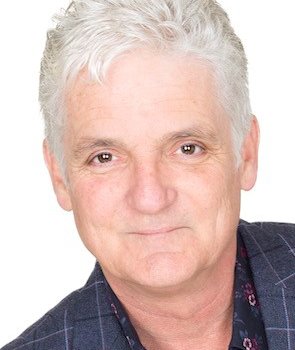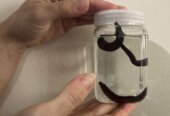
Peter Matthews
No Planet B
By Peter Matthews
Scanning through the news this morning, I noticed an article on BBC News which claimed ‘one of biology’s biggest mysteries largely solved’ by AI.
Normally I like the BBC writers, they make complex subjects accessible, but in this case after a very short time my mind had turned to fog. The first few lines gave way to a discouragingly complex graphic which I skipped almost immediately in favour of continuing to bounce over the text without really understanding any of it. Reaching the end of the article I was aware that a significant advance has just been made in the field of AI which will be of enormous benefit to the study of medicine and proteins.
That’s good news.
Still a bit blurry on it, I turned to the Guardian version of the same story.
I’m not sure exactly why, but this article was easier to read and made more sense – to me. I was still actively engaged with the text when I got to the bit which read “pave the way for designer medicines, more nutritious crops, and ‘green enzymes’ that can break down plastic pollution.”
Well that sounds like very good news.
In the BBC article the writer quoted a Professor Dame Janet Thornton referring to the problem just solved as ‘one of biology’s biggest mysteries’.
In the Guardian version the same source was quoted as saying “This is a problem that I was beginning to think would not get solved in my lifetime.”
The latter quote just seems more interesting to me, it conveys the gravitas of the matter and gives it context at the same time.
Journalistic style aside, this really sounds like a big deal.
Imagine an enzyme which could break down plastic pollution into environmentally harmless, or even beneficial materials.
But even if such a thing could be produced, how would it be deployed? One couldn’t simply pump vast quantities of enzymes into the skies and seas. Since an enzyme is not a living thing it would have to be incorporated into an organism. Then, to have any effect on plastic pollution, that organism would have to be allowed or encouraged to become ubiquitous throughout the lands and oceans of the world.
What if it became the microbial equivalent of rats, rabbits, and possums in New Zealand?
Once out of the box there would be no putting it back in.
I’m all in favour of scientific advance and research but if Covid-19 has taught humans anything it is surely the power of the microbe. We humans, at the pinnacle of thousands of millennia of evolution, are perilously susceptible to any number of threats from further down the food chain.
So maybe the BBC’s rather tedious explanation of the science was, in fact, a more realistic interpretation of the situation than the Guardian’s “green enzymes”. Or maybe it is the responsibility of any reader of any text to keep an open mind for as long as possible, on the way to a conclusion.









